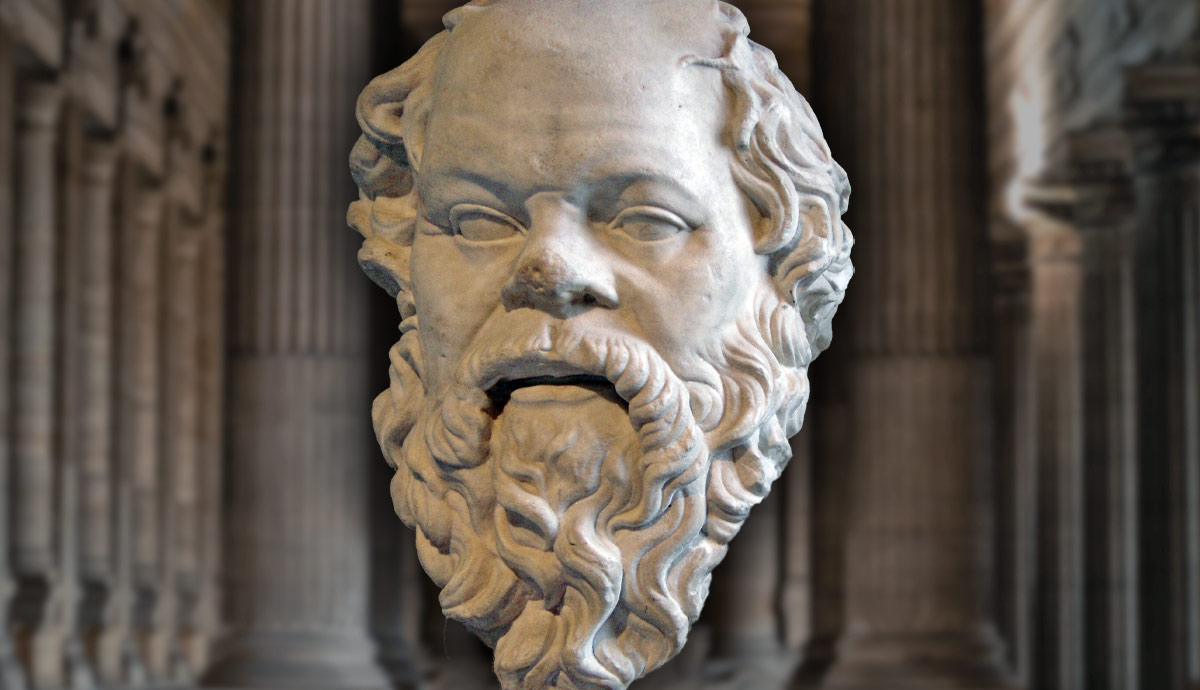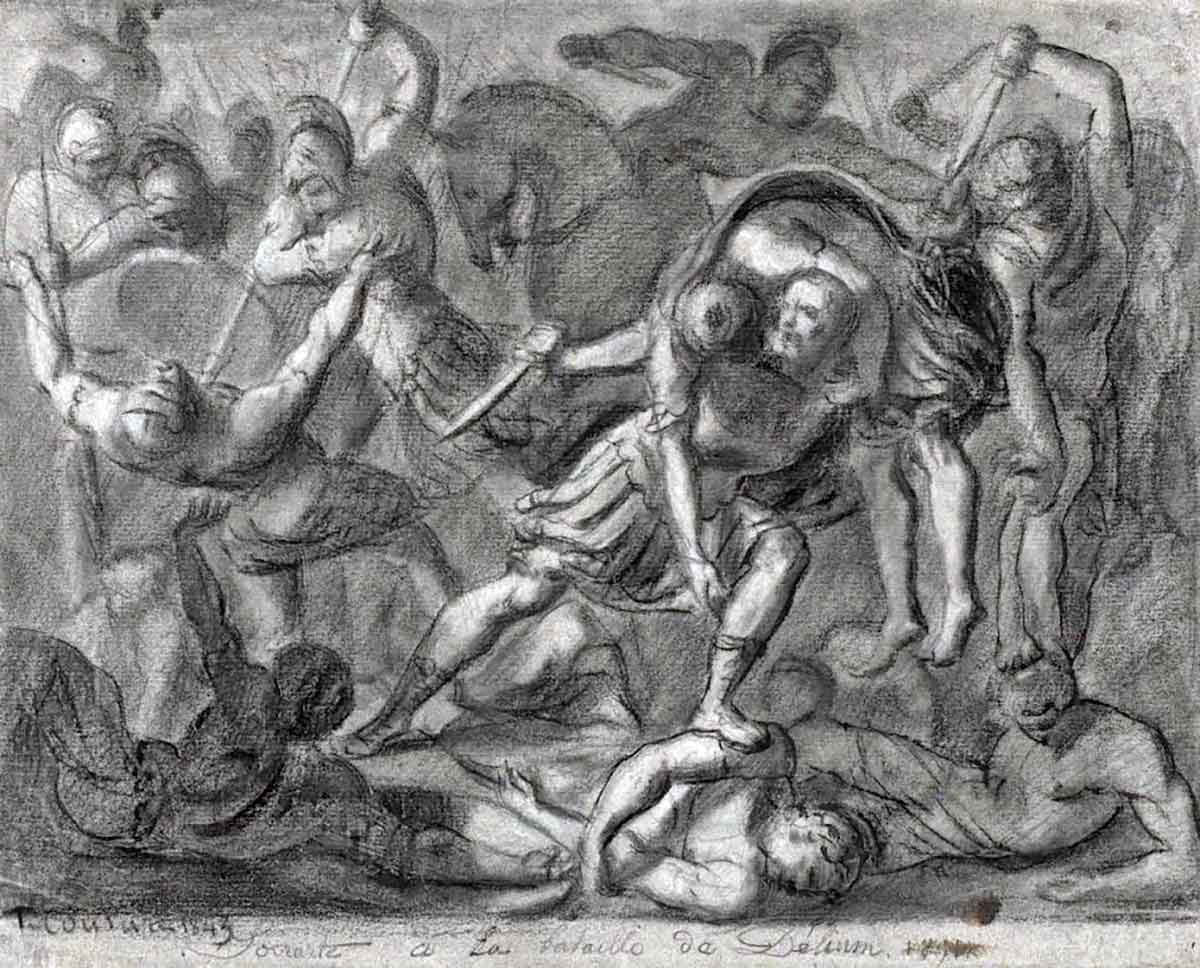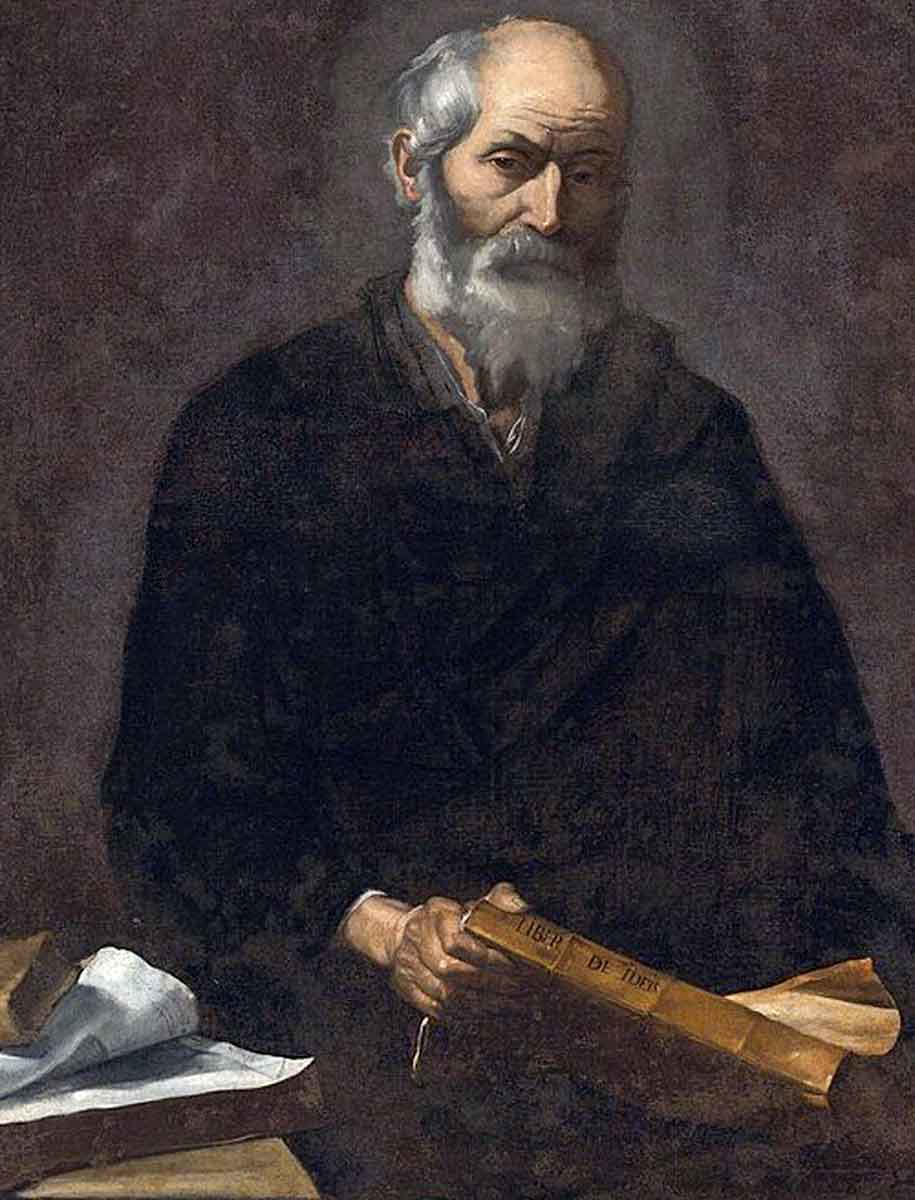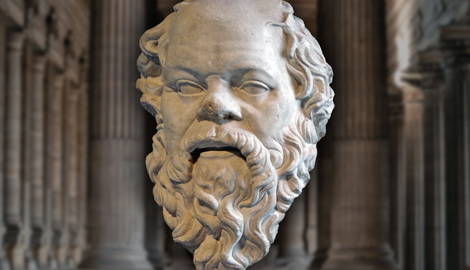
Socrates is often considered the first in a line of the forebear of some of Greece’s most important philosophers, with his ideas and methodologies influencing many of the great Greek schools of philosophical thought. Socrates himself left behind no written texts, so what do we know about his life, ideas, and influence on Greek philosophy?
The Socratic Method

Socrates was born in approximately 469 BCE during the Athenian Golden Age. Under the rule of Pericles, democracy flourished, and Athenian culture was rich with political participation and social exchange.
His philosophical journey reportedly began after a friend told him that the Oracle of Delphi declared him the wisest man in Athens. To put this to the test, he began approaching Athenians considered wise and probed their knowledge and values through critical conversation that continuously questioned the underlying basis of beliefs. He eventually accepted the verdict of the oracle, because only he was willing to admit the limits of his own wisdom.

This conversational approach became central to Socrates’ approach to philosophy and is known as the Socratic method. Socrates left no written texts of his own. His ideas are preserved only by his student Plato, who casts Socrates as the lead in many of his “dialogues,” which imitate the Socratic method on paper. It is assumed that the ideas reflected in the dialogues featuring Socrates belonged to the older philosopher but were filtered through Plato.
According to Plato’s works, Socrates believed his purpose was to live a flourishing life, and that the only way to achieve this was by seeking knowledge of what is truly good in the world. He also believed that his purpose was to help others critically examine their own beliefs through his questioning method. Plato presented Socrates as the ideal philosopher and citizen.
Death of an Athenian Citizen

Socrates was an active Athenian citizen who fulfilled his military duty during the Peloponnesian War. He also established a strong presence in Athens, engaging in philosophical discussions around the Agora. But he was not universally popular. In Aristophanes’ play The Clouds, Socrates and his followers are depicted as careless and clueless intellectual frauds.
When some of his former students became involved in anti-democracy groups, the tide firmly turned against the philosopher, and he was put on trial for corruption of the youth and disavowing the Athenian gods. He was sentenced to death by a jury of his peers, and while he reportedly had a chance to escape, he chose to accept their judgment due to his belief that citizens are obliged to obey collective laws as part of maintaining the greater good for all.
Platonism

Plato built upon the ethical and epistemological imperatives of Socrates, developing Platonism: a systematic lens for understanding the universe that prioritizes pure ideas as the sole object of thought, and thus the only real things. The aggregation of Socrates’ case-by-case investigations into concepts like beauty, justice, and friendship allowed Plato to envision a logical connection between all these ideas, all that is real, which represents the entire universe. This is known as the Theory of Forms.
Plato prioritized essence and pure ideas over particulars and the material world. Investigating these parts of experience wasn’t seen serious inquiry, since it was merely ancillary to understanding the realm of ideas. A focus on the material world would only emerge with Plato’s own student, Aristotle.
Socratic Philosophy

The only surviving accounts of Socrates from people who knew him come from Plato, Aristophanes, and Xenophon, who confirms Plato’s characterization of Socrates’ trial and death and also defended the philosopher. Aristotle also mentioned Socrates in his philosophical writings. Socrates’ emphasis on learning how to live the best life informed Aristotle’s theory of virtue. Unlike Plato, Aristotle’s method of philosophy follows Socrates’ habit of starting from particulars and material objects as evidence to inform pure concepts.
The term “Socratic” doesn’t refer to any specific philosophical school of thought, but is apt for describing philosophies inspired by his principles and method. Besides Plato, other students of Socrates went on to establish their own schools of philosophy, which we can call Socratic; Antisthenes and Aristippus went on to develop Cynicism and Cyrenaicism. These ideas, and the writings of Plato and Aristotle, provided a base from which the Hellenistic philosophies of Stoicism, Epicureanism, and Skepticism later developed.










